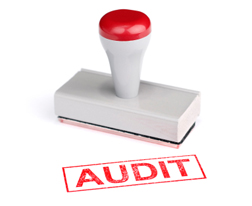April 2015 Newsletter
The Tax Office has announced some of this year's target areas for audit activity, all wrapped up in a more accessible, less confrontational title. We also remind employers and super fund trustees that SuperStream is coming, and look ahead to what the Government may have in mind for the generous tax concessions extended to super funds.
In this edition...
 As it does around this time every year, the Tax Office recently announced its approach for ensuring compliance with the tax system. It also detailed some of the items it will be targeting as a part of its monitoring.
As it does around this time every year, the Tax Office recently announced its approach for ensuring compliance with the tax system. It also detailed some of the items it will be targeting as a part of its monitoring.
The approach of the Tax Office is a little more conciliatory this time around though. Rather than using more ominous language, the document it released this year is entitled 'Building Confidence', and frequently emphasises that the majority of taxpayers 'do the right thing'. As such, the Tax Office says its approach is focussed on fostering willing participation from the majority, and tailoring reviews and audits for the small number of taxpayers who are not complying, based on the pattern of their behaviour and the level of risk.
It's not hard to see why the Tax Office is excited about its monitoring and review program. The document notes that for 2013/14, an additional $1.5 billion was raised from compliance activities. This would seem to suggest that despite the platitudes, it's certainly lucrative for the Tax Office to continue identifying and targeting new areas of potential non-compliance.
In particular, attention will be turned this year to a number of deductions that are deemed higher risk for non-compliance. Work related travel claims for overnight stays and motor vehicle expenses will get closer attention, especially for people who may be claiming travel from home to work. The Tax Office is also interested in claims for the work-related portion of the use of computers, phones and other electronic devices. If you've been making claims for these items in prior returns and intend to do so this year, it would be worth contacting us to make sure you're keeping the correct records and making a valid claim.
The Tax Office also says it will be focusing on rental properties. It notes that there have been a number of cases of taxpayers claiming excessive deductions for holiday homes. In such cases, deductions should be limited to the actual rental activity (for example, the number of days the home is available to be rented out). It also needs to be commercially available. The Tax Office cited one example of a taxpayer who technically made a rental property available all year round, but the nightly rent was much higher than other properties in the area - likely a deterrent to anyone actually renting the property. In this case the efforts to rent the property were not 'realistic' and the Tax Office deemed that in practice, the property was mainly for the taxpayer's personal use.
There have also been instances of incorrect claims in relation to rental properties more generally, particularly with respect to the splitting of income and deductions unequally between joint owners in order to achieve a better tax outcome. In one case a higher income earning partner claimed all of the expenses in relation to a rental property, while the lower income partner declared all of the income! While this particular instance was a pretty obvious example of deliberate tax evasion, the Tax Office will be digging a little deeper, looking for anomalies in arrangements where a rental property is jointly owned.
One common mistake made by owners of rental properties is to refinance a property in order to redirect funds for private purposes. An example might be to redraw against your rental property loan (the interest on which is deductible) to finance an overseas holiday. This has always been a big no-no. The Tax Office will always look to the purpose of the finance, and if necessary, require a taxpayer to apportion any interest between commercial and private purposes.
There are less obvious examples though where this principle would also apply. Let's say for example you have a mortgage on your home, but you've paid most of it off. You then decide you want to buy a newer, larger property and move into that, and keep your existing home as a rental property. It would appear to make sense then to redraw as much of your mortgage equity as possible and put that into your new personal residence, before renting out your old house. The rationale would be that you maximise the interest that will be tax deductible, and minimise the level of non-deductible debt in your new residence. This practice is more common than you might think, and indeed may be a tactic employed by some personal financial planners and debt reductions specialists. The principle however is the same as the overseas holiday. It doesn't matter over which property the security is held, the Tax Office looks to the purpose of the debt when determining whether interest is allowable as a deduction. In this case the purpose of the finance, even though it is being drawn against what is now a rental property, is to fund a personal residence (the new home) and is therefore not an allowable deduction.
Such debt refinancing arrangements will also come under scrutiny as a part of the Tax Office's future compliance reviews. If you're thinking about buying a new property, or would perhaps like some clarification on past activity, please contact us.
The Tax Office also notes that it uses increasingly sophisticated data matching technology to identify Income Tax Return information that is missing or incorrect. This includes getting information from banks, share registries, employers and government agencies. In their view the long term prognosis is that it's a matter of when, not if, non-complying taxpayers are caught.
We of course do all that we can to make sure that audit and review activities won't adversely impact you. Generally speaking, the mere fact of being a Dewings client makes you a lower risk target - our reputation means that an audit of one of our clients is unlikely to yield much fruit. Nevertheless, the level of Tax Office activity means that audits are inevitable and even where a taxpayer ends up getting an all-clear, the audit process itself can cost a lot in accounting fees. You can mitigate this cost by taking out audit insurance with us for a very low annual premium.
It's worth noting too that while we maintain a high level of technical expertise, and try to ask the right questions of you each year, especially in relation to these 'hot button' items, ultimately we rely on the information we receive. If the preceding has raised any concerns in your mind about issues that might make you a higher risk target, please contact us to discuss.
 Just a reminder for anyone who is an employer or a trustee of a Self-Managed Superannuation Fund (SMSF) - SuperStream is coming. In some cases, it's already here.
Just a reminder for anyone who is an employer or a trustee of a Self-Managed Superannuation Fund (SMSF) - SuperStream is coming. In some cases, it's already here.
Last year we highlighted that the implementation date for SuperStream had been extended due to a lack of public awareness as to the implications, and mechanisms for using, SuperStream. While the success or otherwise of the education program conducted since that time may be debatable, the reality is that ready or not, SuperStream is beginning to have an effect, even on small businesses.
Technically two things need to happen:
-
Superannuation fund trustees need to be ready to accept superannuation contributions in an appropriate form, which includes establishing an Electronic Service Address (ESA) with an approved provider;
-
Employers need to make sure that their employees' superannuation contributions are submitted in an appropriate form, including attaching the fund's ESA. This will usually require the use of payroll software or the Small Business Superannuation Clearing House in order to comply.
Employers with 20 employees or more must be submitting contributions in an approved form by 1st July 2015. That's about two months away.
For smaller employers, the deadline is 1st July 2016. That may lead to the conclusion that nothing needs to be done for now, but in fact small businesses may be affected already. For example, we have seen instances where large industry superannuation funds are ready to roll with SuperStream and are now requiring that contributions be in the approved format. So even though the affected employer is not required legally to comply until next year, practically speaking they are compelled to get their systems ready now in order to make contributions.
In such cases, the Small Business Superannuation Clearing House might be a great (and free) solution. In fact, we'd recommend small employers use it anyway, regardless of the SuperStream advantages, for the time that it will save submitting contributions for employees.
There is an exemption that will affect some of our clients. Where an SMSF only receives contributions from a 'related-party employer', the fund will not be required to be SuperStream ready. So if you have a business and an SMSF, and the SMSF only receives contributions for you from that business, your fund may not be affected. If we look after your SMSF for you, we will have already looked into this and contacted you if you are affected. If you haven't heard from us, you're probably ok.
We understand that this initiative is confusing, and yet another burden on small business owners. Unfortunately however, it is happening.
We're here to help. If you have any questions or concerns about your business and/or SMSF and how you might be affected, please contact us.
 The Government wants to have a conversation with the Australian people about tax.
The Government wants to have a conversation with the Australian people about tax.
The process was kick-started recently by the Federal Treasurer with a discussion paper called ‘Re:think’, which calls for taxes that are ‘lower, simpler and fairer’.
The paper addresses the complexity of the current system and its high reliance on income tax, the GST and the imbalance in taxation treatments between different saving measures.
On that last point, the Government indicated that it may look at the generous concessions afforded to superannuation savings, particularly if it is able to secure bipartisan support for any reforms. This is despite a pre-election promise to leave superannuation alone.
If you’ve read anything we've written before about the tax treatment of superannuation in Australia, you’ll know that we firmly believe that successive governments will never stop tinkering with super. The wealth pool is now so great in Australia (well over $1 trillion) that very small adjustments result in massive returns to the budget bottom line. This recent announcement certainly lends weight to that line of thinking.
The discussion paper is especially aimed at considering the long-term sustainability of the tax system in light of an ageing population. One significant implication of this looming reality is that many of those currently sustaining the income tax system will in time move to a position of paying no income tax at all through superannuation. The Government is therefore likely to target the tax-free status of all superannuation income in retirement, especially for the wealthy.
The argument goes that exempting all retirement income from tax provides a much greater benefit to those who have significant savings, and they are the least likely to draw on the Aged Pension. Others may argue of course that it is the wealthy who have paid more tax during their working life and are therefore entitled to the same benefits in retirement, with respect to tax, as anyone else.
In an announcement released just as we were finalising this issue, Labor declared that if elected it would introduce a 15% tax on retirement earnings in superannuation that exceed $75,000 per annum, and reduce the current superannuation surcharge threshold (an annual income threshold over which any contributions to super are taxed at 30% rather than the usual 15%) from $300,000 pa to $250,000. This came with a promise that "these are the final and only changes we will make to the tax treatment of superannuation."
So it seems that whatever happens, change of some sort is coming, which will perpetuate the uncertainty of the superannuation landscape in Australia. Further, we continue to remain sceptical that either party will stop making tweaks to the tax treatment of super into the foreseeable future.
There may well be action you can take now to minimise the impact of these reforms. This is where the rubber of good, proactive advice really hits the road.
 Download PDF Newsletter
Download PDF Newsletter